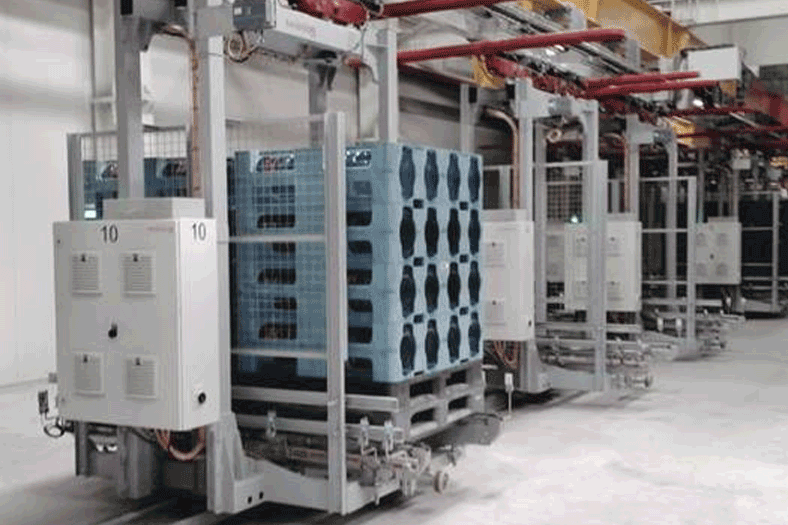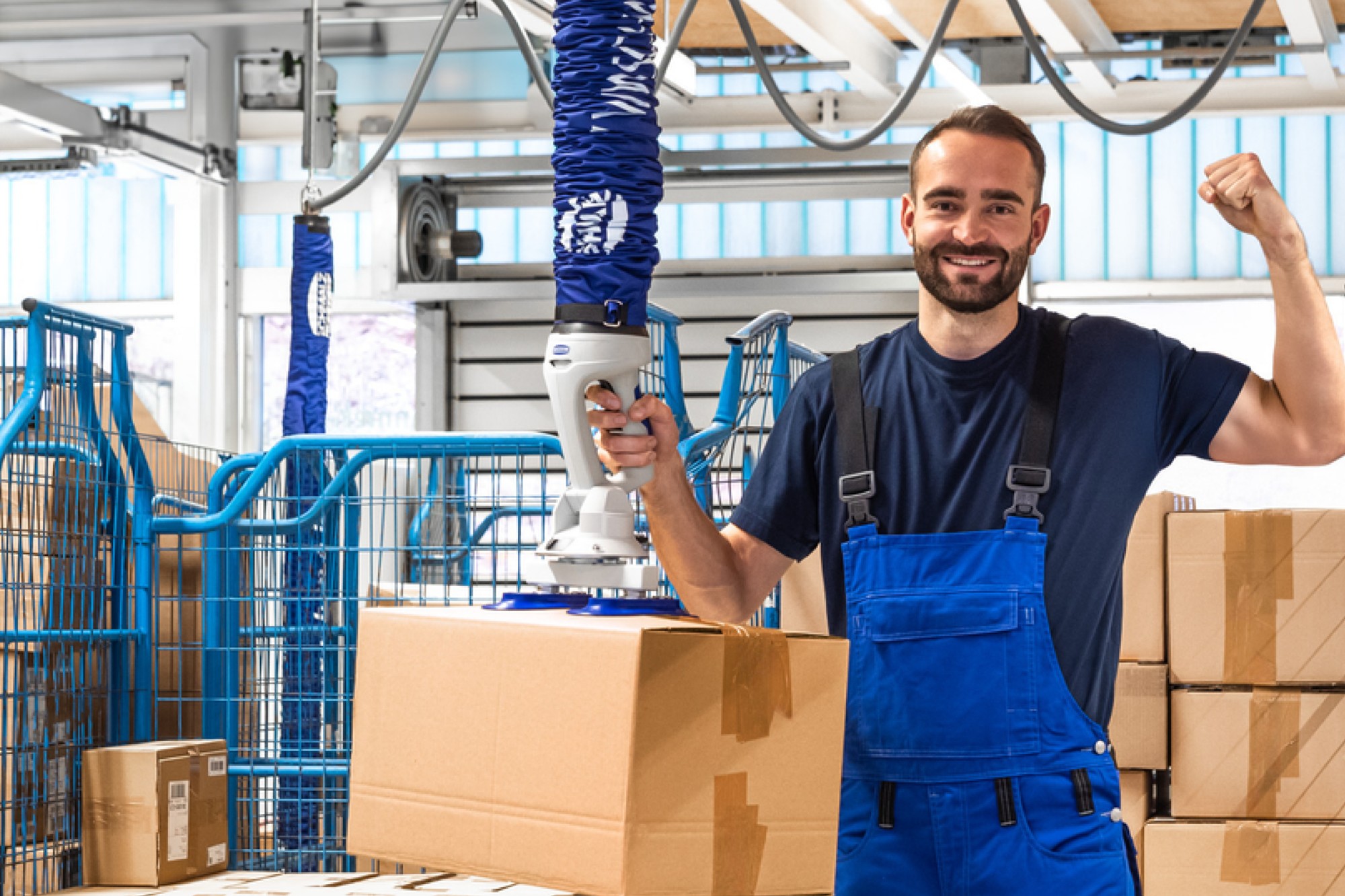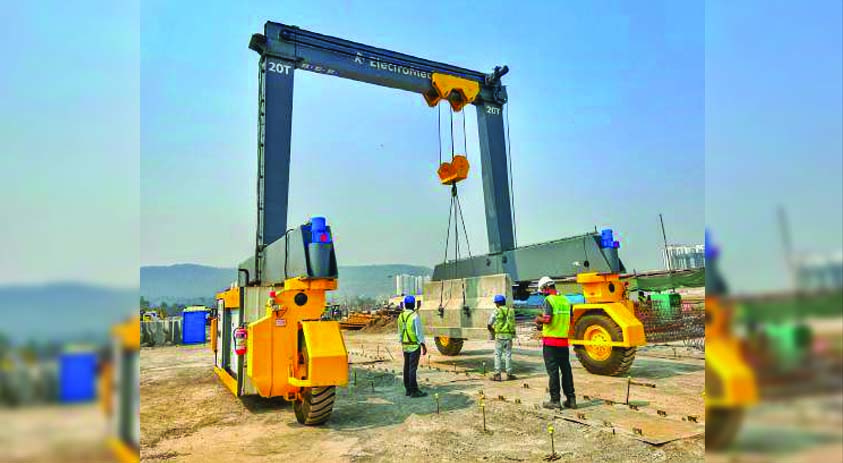HOW MHE REVOLUTIONISING THE MANUFACTURING PROCESS
By OEM Update Editorial November 10, 2020 1:31 pm IST
A report on applications of material handling equipment and their importance in manufacturing industry.
Material handling is an integral part of the manufacturing industry. Everything from delivering the raw materials to the packaging to the despatch of end-products out of the factory is dependent on the material handling equipment (MHE). Efficiency in material handling process ensures right materials in right quantities are delivered to the right locations at the right time. Thus, smooth and efficient functioning of MHE plays a key role in achieving the desired efficiency and productivity of a manufacturing facility.
According to a Reportlinker report, the global market for MHE is projected to reach US$190.3 billion by 2025 whereas a report by Inkwood Research forecasts worldwide demand for MHE is expected to grow at an annual rate of more than 6 percent through 2026.
“Raw material being the primary and most importance element in manufacturing needs to move through multiple stages of production and final packaging in a smooth and seamless manner to prevent logistical bottlenecks in production,” the Reportlinker report adds.
In India, as the government has launched several initiatives like “Make in India”, “Atmanirbhar Bharat”, and “Vocal for Local” to promote domestic manufacturing and attract foreign companies to establish their manufacturing base in India, the demand for advanced MHE is expected to grow exponentially.
Automation in material handling
Material handling is a repetitive and labour intensive activity. Thus, integration of automation in the material handling process in any manufacturing facility can reduce labour costs, enhance speed and efficiency of operations, and eliminate the risk of errors and material damage.
Industrial robots are increasingly finding applications in shop floor activities including: part transfer, machine load/unload and packing/palletizing. Robotic MHE powered by state-of-the-art telematics systems enable labour planning, optimise fleet usage and maintenance or create ideal inventory flow. Robotic trucks integrated with advanced Warehouse Management Systems (WMS) or Enterprise Resource Planning (ERP) systems allow real-time adjustments to be made. These can lead to cost savings and tremendous competitive advantages.
Gearing Up To Industry 4.0
Efficient material handling offers smart benefits in manufacturing and warehousing sectors. The evolution of hands-free communication systems, IoT, AI, and Cloud data is enabling to synchronise the overall production process optimally. For example, global warehouse automation specialist, Swisslog recently announced the successful installation and implementation of a new fully-automated and retrieval solution for Mai Dubai, a leading Dubai-based bottled drinking water company. The move is part of Mai Dubai’s ongoing expansion initiative and involves the implementation of a fully automated and data driven intralogistics system that is in line with Industry 4.0.
As part of an order valued over Euro 20 million, Swisslog planned and implemented a fully automated system based on intelligent software in the context of big data. The major expansion project included planning and implementing a six-aisle automated high-bay warehouse for raw material and packaging materials as well as -only a few hundred meters away – a high-bay warehouse with 17,560 pallet locations for finished goods with 10 aisles. “The use of Swisslog’s fully automated storage and retrieval solution will help drive key benefits and advantages for Mai Dubai, including a significant reduction in labor costs, improved production and enhanced storage efficiencies,” an official statement said.
Alain Kaddoum, General Manager, Swisslog Middle East, said, “Warehouse and factory managers constantly need to synchronize their material flow between production and warehouse to optimize the inventory level and reduce the operational costs. The introduction of new automation deployments driven by strong WMS can maximize return on investment and minimize risks to supply chain operations.”
The installed Swisslog solutions included the Vectura pallet stacker cranes (ASRS), which are known for its optimized energy-efficient design and delivery of highly efficient storage and retrieval with minimal energy costs; a monorail system complete with 44 trolleys; a ProMove pallet conveyor and lifting systems that ensure the efficient flow of goods and sequencing of pallets in receiving and shipping. The company also deployed an advanced high-performance information technology (IT) infrastructure and controls systems, the Swiss-log Warehouse Management Software (SynQ), which allows for real-time 3D visualization and condition monitoring of the entire operations. The modular software platform also offers a number of big-data business intelligence tools that can be flexibly added over the time. With its modular architecture and user-friendly design, the WMS software helps Mai Dubai to be prepared for the future.
Cookie Consent
We use cookies to personalize your experience. By continuing to visit this website you agree to our Terms & Conditions, Privacy Policy and Cookie Policy.


















